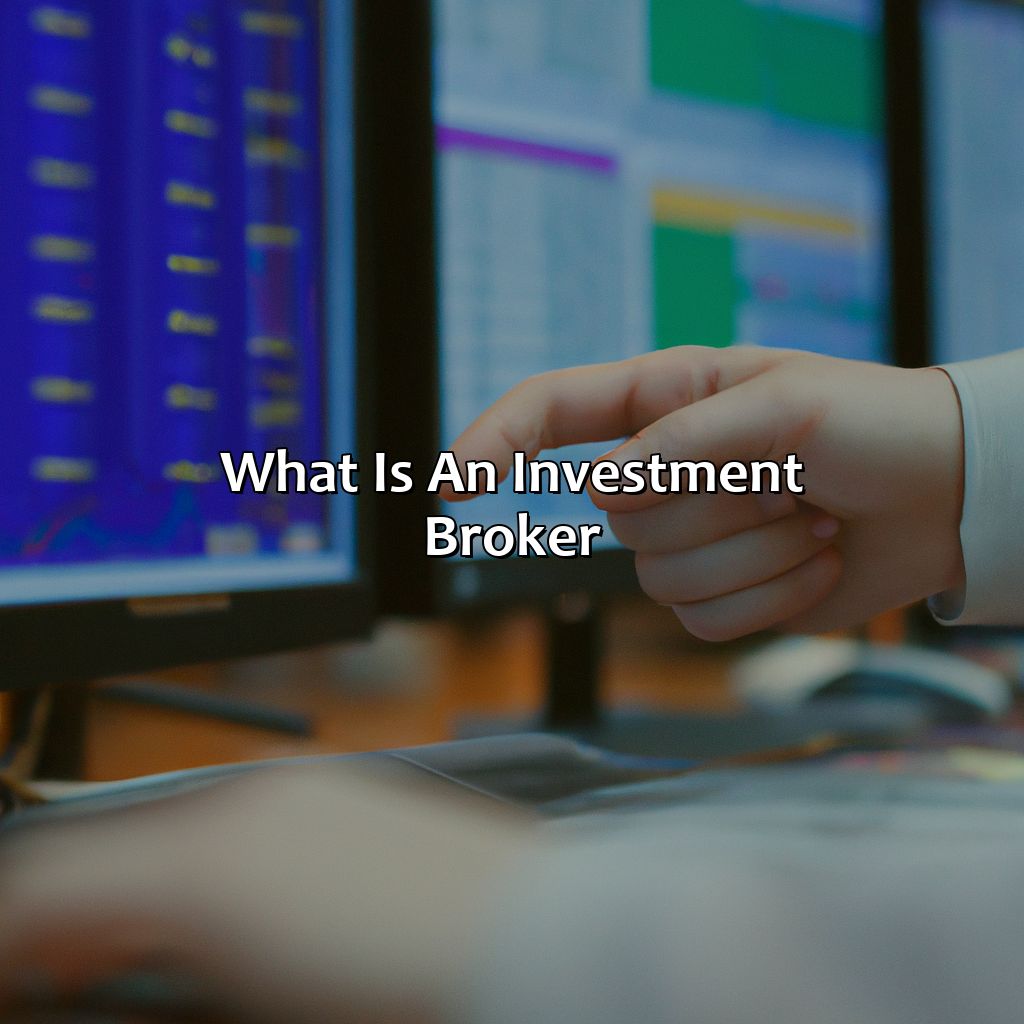What Is An Investment Broker?
Key Takeaways:
- Investment brokers act as intermediaries between investors and the securities markets by facilitating the buying and selling of securities on behalf of their clients.
- The role of an investment broker can vary depending on the type of broker. Full-service brokers provide personalized investment advice, research, and other services for a higher fee, while discount and online brokers offer fewer services with lower fees.
- To choose an investment broker, it’s important to determine your investment goals, research potential brokers, compare fees and commissions, and evaluate the services offered to find the best fit for your needs.
Are you wondering what an investment broker does and how they can help you? You’ll get answers to these questions in this article as we discuss what investment brokers do, the different types of brokers, and the benefits they offer.
What is an Investment Broker?
Investment brokers are professionals who provide financial advice and investment services to clients. They assist clients in managing and growing their investment portfolios by analyzing market data and providing recommendations. Investment brokers also execute trades on behalf of their clients. They are licensed and regulated by governing bodies to ensure they operate within legal and ethical boundaries.
Investment brokers play a critical role in the investment industry. They are responsible for advising clients on investment strategies, selecting and analyzing investment opportunities, and executing trades. They work closely with clients to understand their investment goals and risk tolerance, and then develop investment plans to meet those goals.
Investment brokers are required to have extensive knowledge of investment products and market trends. They must stay up to date with the latest financial news and trends to provide the best advice to their clients. Additionally, investment brokers must adhere to strict codes of ethics and follow regulatory guidelines to protect their clients’ interests.
In the early days of the stock market, investment brokers were called “stock jobbers.” They were known for their aggressive trading practices and unscrupulous behavior. However, with the advent of financial regulations, the role of investment brokers has evolved into a profession that is highly respected and regulated. Today, investment brokers are trusted advisors who help clients navigate the complex world of investing.

Image credits: retiregenz.com by Adam Arnold
Types of Investment Brokers
Types of Investment Brokers
Investment brokers are professionals who assist individuals and businesses in investing money in securities and other assets. They act as intermediaries between investors and the markets. Here are the four types of investment brokers:
- Full-service Brokers: These brokers offer a wide range of investment services, research, and advice to their clients. They charge high fees for their services but provide personalized investment plans.
- Discount Brokers: These brokers offer fewer services than full-service brokers and charge lower fees. They typically focus on executing orders for their clients without providing investment advice or research.
- Online Brokers: These brokers provide an online platform for investors to trade securities, often at lower costs than traditional brokers. They offer self-directed investment services, research, and tools to their clients.
- Robo-advisors: These are digital investment platforms that use algorithms to create and manage investment portfolios. They offer a low-cost alternative to traditional brokers and provide automated investment management services.
It is essential to choose an investment broker that aligns with your investment goals, risk tolerance, and budget. Make sure to do your research and compare fees and services to find the best fit for your needs.
Interestingly, the first investment brokers were merchant bankers in the 1600s who acted as intermediaries between investors and underwriters. The rise of the stock market in the 1800s led to the emergence of modern brokerage firms that have evolved into the various types of investment brokers we have today.
Overall, the right investment broker can help you navigate the complex world of investing and help you achieve your financial goals.

Image credits: retiregenz.com by Adam Arnold
Steps to Choosing an Investment Broker
Investment brokers play a crucial role in securing investment vehicles that align with the goals and risk appetite of investors. Here are some tips to help you choose an investment broker in a way that befits your investment style and goals:
- Define your investment goals and objectives to determine the investment products that align with your investor profile.
- Assess the fees charged by different investment brokers, including commissions, transactional fees, and other expenses, to determine the most affordable and reasonable broker.
- Look for investment brokers with in-depth knowledge of your preferred investment products and a proven track record in their brokerage activities.
- Check the investment broker’s license, registration, and reputation to ascertain their legitimacy, credibility, and compliance with relevant regulatory bodies.
It’s also noteworthy that some investment brokers specialize in particular markets, investable asset classes, or investor types. Therefore, identifying specialized brokers that suit your unique investor needs is critical.
According to a report by the Investment Company Institute, as of 2020, mutual funds held over $21 trillion in assets under management, affirming the significance of investment brokers in the modern financial market.

Image credits: retiregenz.com by Yuval Duncun
Five Facts About Investment Brokers:
- ✅ Investment brokers act as middlemen between investors and financial markets to facilitate the buying and selling of securities. (Source: Investopedia)
- ✅ Investment brokers can be classified into categories such as full-service, discount and online brokers based on the level of service they provide and the fees they charge. (Source: The Balance)
- ✅ Investment brokers are regulated by government agencies such as the Securities and Exchange Commission (SEC) to protect investors’ interests. (Source: SEC)
- ✅ Investment brokers need to have a good understanding of financial markets, investment products and be able to analyze market trends to provide investment advice to their clients. (Source: Forbes)
- ✅ Investment brokers are compensated through commissions and/or fees charged for their services which can vary based on the nature and size of the investment. (Source: NerdWallet)
FAQs about What Is An Investment Broker?
What is an investment broker?
An investment broker is a professional who helps clients make investments in the stock market, real estate, and other types of assets.
Is an investment broker the same as a financial adviser?
No, an investment broker is not the same as a financial adviser. While both help clients with their investments, a financial advisor typically provides broader financial planning services, including retirement planning, tax advice, and estate planning.
What services does an investment broker offer?
An investment broker can offer a range of services, including investment research, portfolio management, and trading services. They can also provide personalized investment recommendations based on a client’s financial goals and risk tolerance.
Do I need to have a lot of money to work with an investment broker?
No, you do not need to have a lot of money to work with an investment broker. There are investment brokers who cater to clients with varying levels of wealth and investment experience.
How do investment brokers get paid?
Investment brokers typically earn commissions on the trades they make on behalf of their clients. They may also charge fees for portfolio management or investment research services.
How do I find an investment broker?
You can find an investment broker by asking for referrals from friends or family members, searching online directories, or contacting a professional organization such as the Financial Industry Regulatory Authority (FINRA). It’s important to research potential brokers and check their credentials before choosing to work with them.
